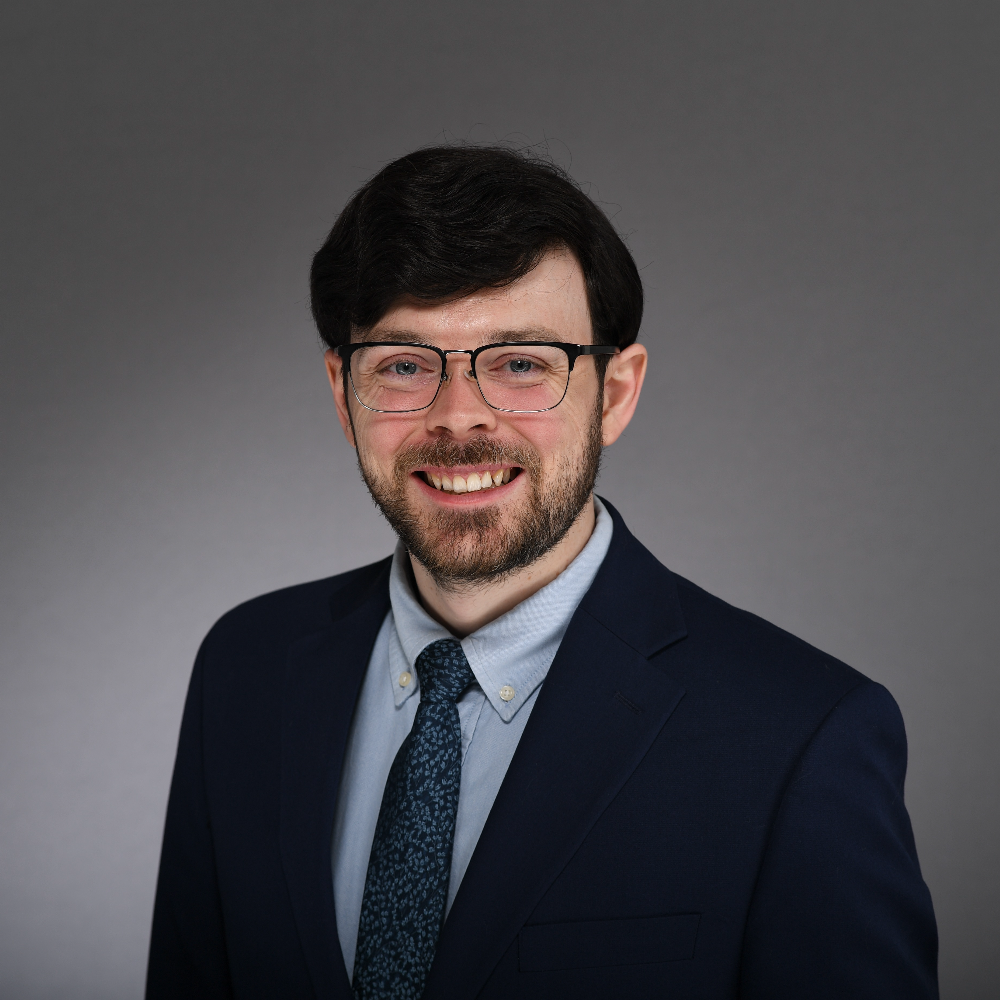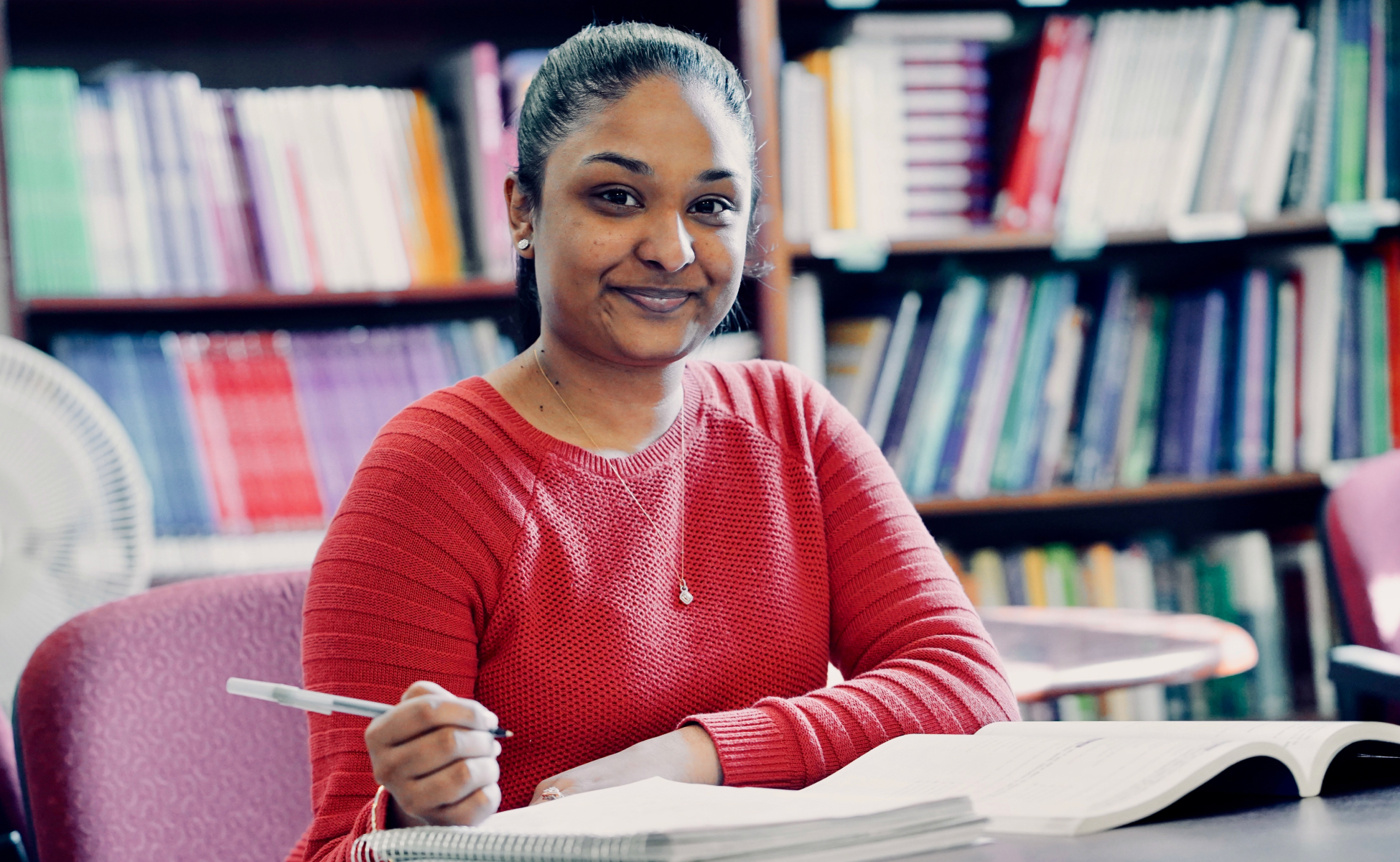The curriculum uses practical, engaging exercises and simulations to develop your understanding of legal systems, political processes, and social structures. You'll examine the foundations of American government, analyze landmark court decisions, and master the analytical thinking skills that employers value.
“Along with an awesome experience and a great education, the major introduced me to a lot of different types of law. This gives me a strong background for decision-making going forward in terms of the legal career I might choose.”
- Kobe Dock '26, NYSCAS Law and Social Sciences major
A Skill Set That Will Serve You For Life
This versatile bachelor's degree builds on the knowledge offered in NYSCAS’ paralegal associate's degree program, giving you a deeper understanding of legal systems, political processes, and social structures.
As a Law and Social Sciences student, you'll develop in-demand skills in:
- Legal writing, research and presentation.
- Critical analysis of legal and political texts.
- Understanding how government systems function.
- Recognizing patterns in social and political behavior.
- Communicating effectively about complex legal concepts.
The major prepares you for a career where understanding law and government systems is essential. Paths NYSCAS students often pursue after graduation include:
- Paralegal or legal assistant positions at law firms, government agencies, or corporations.
- Law enforcement and criminal justice system roles.
- Public administration or government service work.
- Roles in advocacy, community-organizing or nonprofit organizations.
- Graduate studies in law, public policy, or related fields.
.jpg)
“ This major offers you the knowledge base to be an informed citizen. You'll learn the history, the practice, and the theory of politics and criminal justice, so that you can take a well-rounded approach to these topics. ”
- Rabbi Baruch Fogel, Law and Social Sciences department co-chair
Learn Through Hands-on Simulations and Debates
At NYSCAS, you'll learn not just legal theory, but also how law and politics intersect in the real world. Here are a few examples of what hands-on learning might look like in your classes:
- Tort law: Debate a case about a spectator hit by a baseball at a stadium. You'll be challenged to argue the case from different perspectives to decide whether the stadium breached its duty of care under negligence laws.
- International law: Participate in a game theory simulation where you have to decide whether to cooperate or compete with other students. Then connect the dots from your experience to the issues faced by international law enforcement officials.
- Legal writing: Draft actual legal briefs under the guidance of professors who are practicing attorneys. You'll analyze real cases and create the same kinds of documents used in law offices and courtrooms.
- Field trips: Visit the United Nations building or attend local government meetings as part of your studies, then reflect on and discuss the issues you observed when you're back in class.
- Guest speakers: Learn from professionals like practicing attorneys, law school deans, and former government officials eager to share lessons from their experiences in legal fields.
“ Being in New York City is a big asset, especially when teaching legal issues. Having students living in New York, experiencing the vibrance and the diversity, and interacting with all of the political complexities going on around us, is like being in a living laboratory. ”
- Dr. Robin Brooks Ishler, Law and Social Sciences professor

What You'll Learn (and When You'll Learn It)
Phase 1: Build your foundation
- Understand the structure of American government.
- Learn fundamental research and writing skills.
- Study the history of American legal and political systems.
- Complete general education requirements.
Phase 2: Develop your expertise
- Take advanced courses in legal writing and analysis.
- Choose electives that match your career interests.
- Study specialized topics like international law or comparative politics.
- Complete internships or research projects with faculty guidance.
Course Spotlight: American Legal System
This required course gives you an overview of how the American legal system operates, similar to what you'd experience in your first year of law school. You'll get a taste of different legal areas like property law, contracts, torts, and family law.
In this class, you'll:
- Analyze landmark Supreme Court cases.
- Learn about different types of law (civil, criminal).
- Understand basic legal concepts that affect everyday life.
- Participate in debate simulations that develop your critical thinking.
Throughout the course, case studies and simulations will put you in the shoes of lawyers on either side of an argument, helping you develop analytical skills while learning the fundamentals of the legal system.
It’s important to maintain objectivity in these debates, and you’ll have a good role model in your professor. “Everyone has opinions about things,” says student Amos Sivan, who recently took the class. “It can be difficult to toe the line on that when you’re teaching. Dr. Ishler does a very good job of it.”
“Law is a good tool for teaching analytical thinking. If students don't take away the details of what negligence is and all the elements of negligence, they'll still remember the debates that they had and how to think in a more analytical fashion. That's a product of law.”
- Dr. Robin Brooks Ishler, Law and Social Sciences professor
Flexible Study Options That Fit Your Life
We know that NYSCAS students have many commitments. That’s why we offer many ways for you to balance your education with your work and family responsibilities:
- Take classes on evenings or Sundays.
- Choose between in-person or Zoom formats.
- Start in fall, spring, or summer semesters.
- Study part-time or full-time.
- Access personalized academic advising.
The program is designed to accommodate students at different life stages. Many students explore different legal specialties before narrowing their focus, using course experiences to guide decisions about internships and graduate school paths.
“The flexibility at Touro is amazing. I've really appreciated the number of classes offered, the different times, the in-person and Zoom options — all of it. My classes in person are more traditional college age. But my classes online at night are people that are older than me, they're working, they’re married, they have kids. It's been cool for me to meet and learn with them and from their experiences.”
- Kobe Dock '26, NYSCAS Law and Social Sciences major
Faculty Spotlight: Dr. Ishler Brings Legal Principles to Vivid Life
One of the department's newer faculty, Dr. Robin Brooks Ishler brings energy and deep expertise to the Law and Social Sciences major. As an instructor, he values NYSCAS's small class sizes, seminar-style discussions, and closer connections between students and faculty.
Before NYSCAS, he studied political science and international relations at top schools such as the University of California at Berkeley and the London School of Economics.
Dr. Ishler's research combines his knowledge of American government, global politics, and history to find new ways to explain why nations act the way they do. He regularly presents his findings at major conferences, including those held by the American Political Science Association — and he's always looking for ways to involve students in his projects or presentations.
“Teaching is definitively my passion. I love engaging with students and creating participatory and interactive learning environments.”
- Dr. Robin Brooks Ishler, Law and Social Sciences professor
Personalized Support Every Step of the Way
At NYSCAS, you'll never be just a face in the crowd. With at most 25 students per class, you'll get individual attention from educators who know your name and care about your success.
Our support system includes academic and career guidance such as:
- Dedicated advisors who help you plan your course schedule.
- Writing center support for your legal writing assignments.
- Tutoring services for challenging courses.
- Networking and career advice from professors with professional connections.
The academic advising team works closely with the Law and Social Sciences department to help you graduate on time. You'll find the support you need whether you're aiming for law school, law enforcement, or public service.
“My academic advisor is wonderful. She really helps me out, makes sure I get into good classes, and advocates for me. Touro is a homey place, and they're really there for you.”
- Kobe Dock '26, NYSCAS Law and Social Sciences major
Pathways at Touro: Your Gateway to Law School
Want to continue your education after your bachelor's degree? NYSCAS students have a direct pathway to study at Touro Law Center.
As a NYSCAS undergrad, you'll benefit from:
- Access to Touro Law events and symposia.
- Guidance from pre-law advisors familiar with law school requirements.
- Early exposure to law school coursework through your major.
- Greater familiarity with Touro's educational approach.
Many Law and Social Sciences students begin preparing for the LSAT in their junior year, with an eye on going to law school.
Ready to Start Your Journey?
If you're passionate about understanding how law and politics shape our society, apply today. You could be in class in a matter of weeks!


